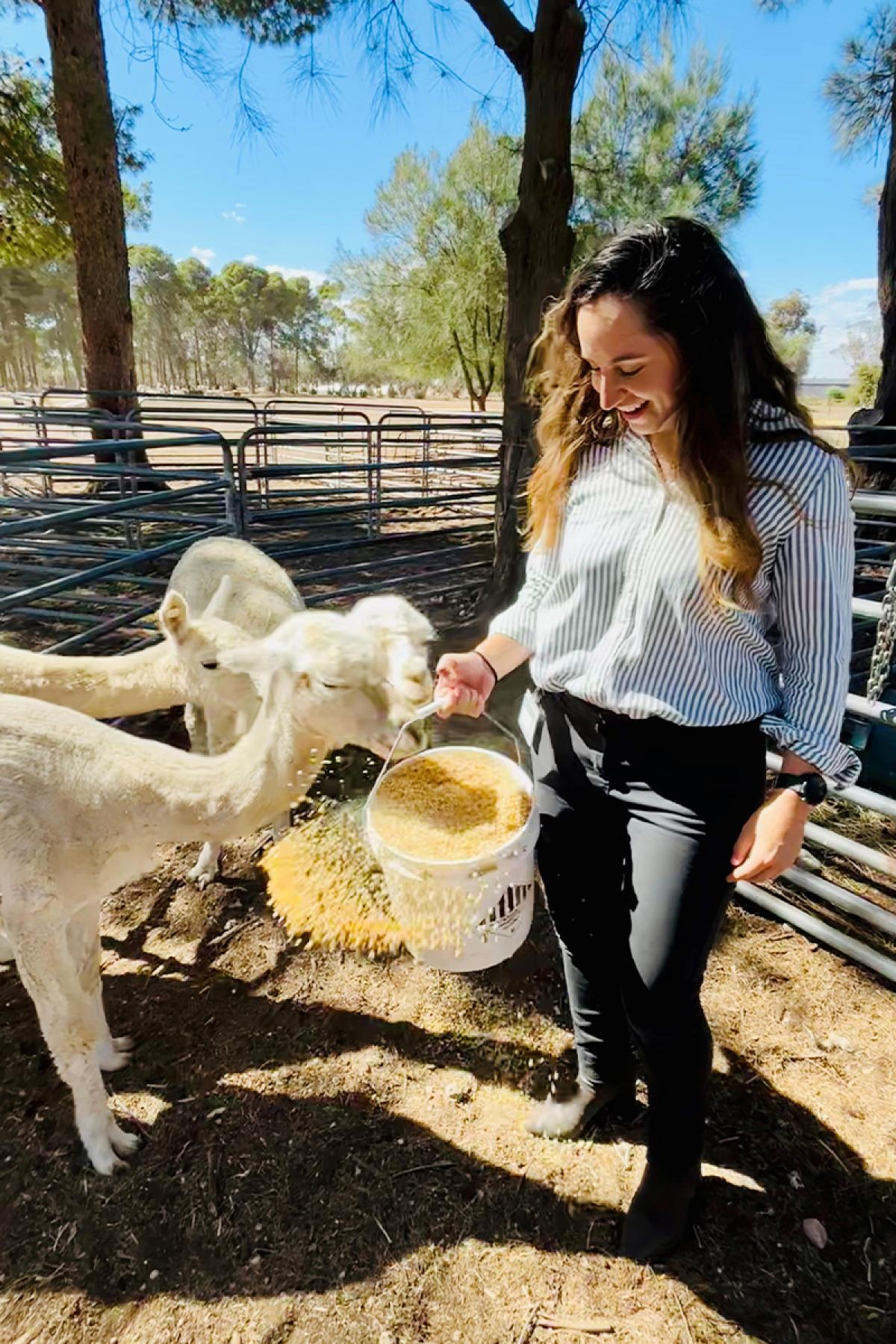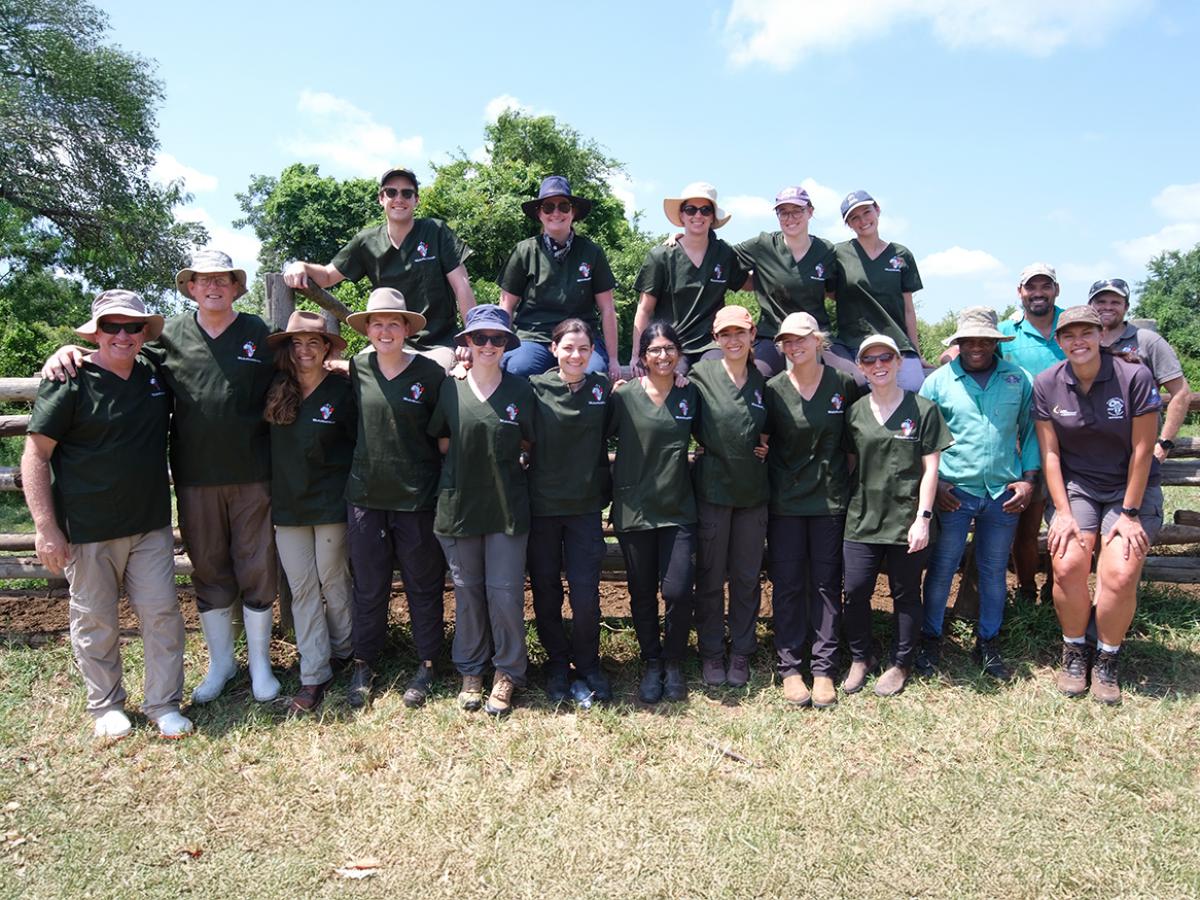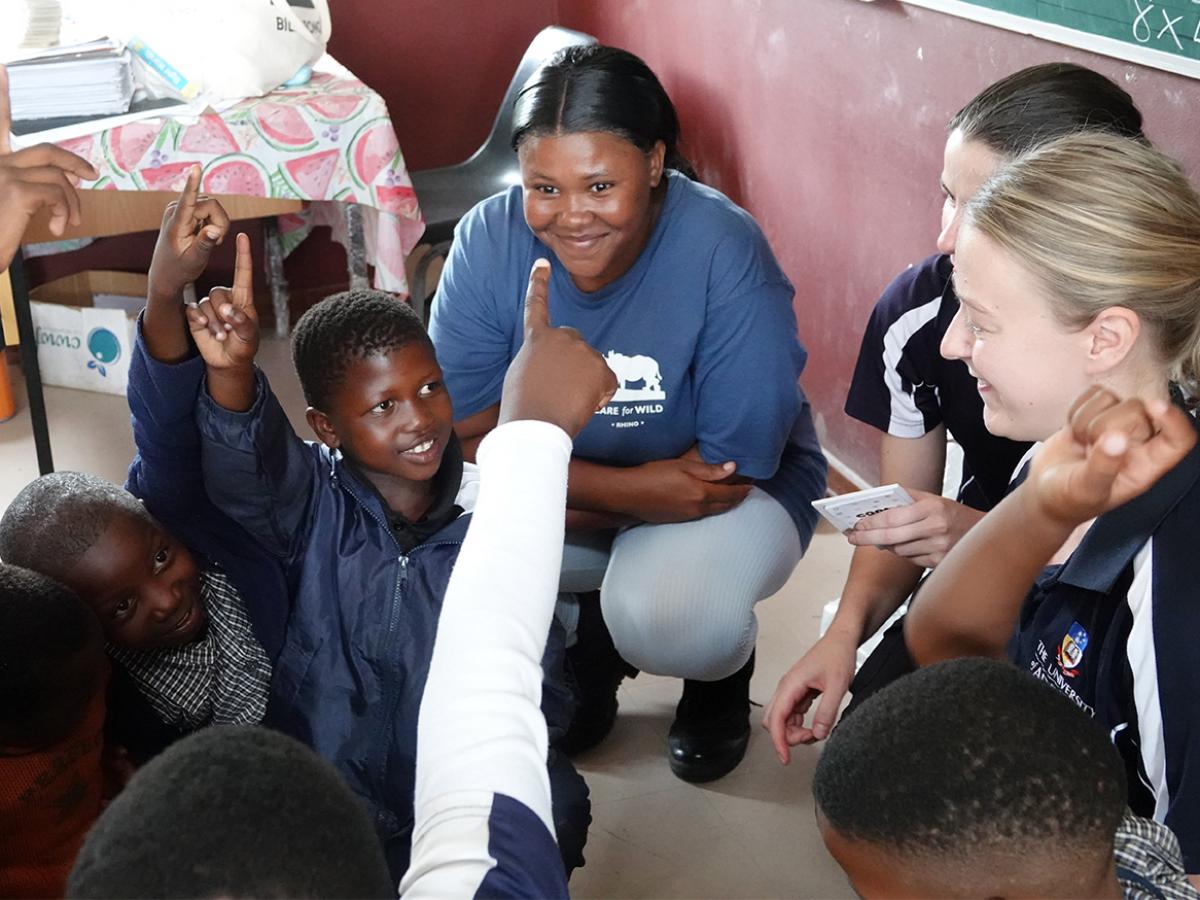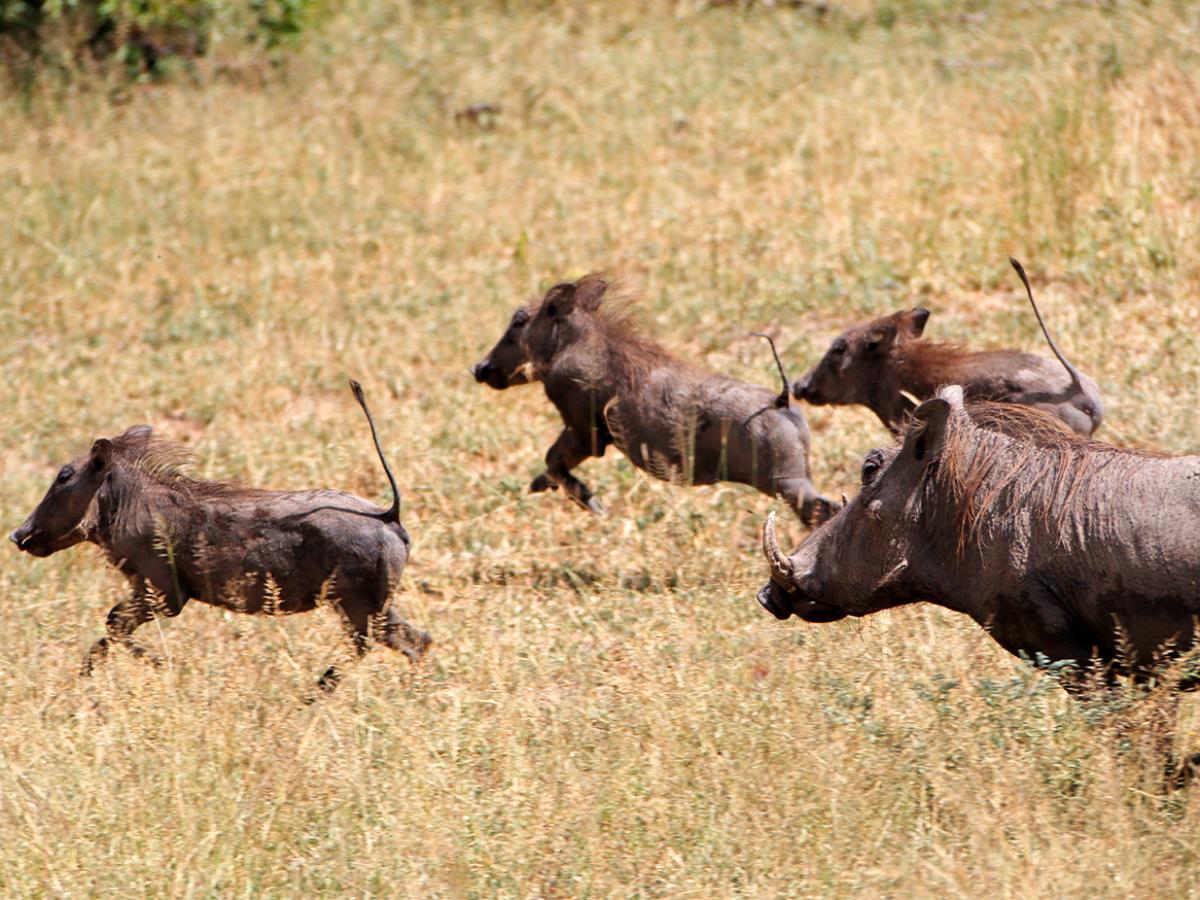Celebrating our colleagues - Dr Mary McQuillan

Celebrating our colleagues - Dr Mary McQuillan, Lecturer, School of Animal and Veterinary Science, Roseworthy
Dr Mary McQuillan’s journey to the University of Adelaide as a veterinary student, researcher and lecturer began in Zimbabwe and came full circle when she returned to Africa for a remarkable study trip this year.
Back on her home continent, she accompanied 12 final year vet students on an unforgettable adventure which included working with orphaned rhinos, conducting tick dips and foot and mouth disease checks on livestock, connecting with schoolchildren, and visiting villagers' homes to inoculate their pets against rabies.
“It made me very proud to be a Roseworthy graduate and teacher,” Mary says. “The students did a brilliant job. There were some big days - we’d start at 3 or 4 in the morning and only finish at 7 at night, in very humid conditions, but they were always keen to do the work.’’
It came as no surprise to Mary that her students returned with renewed confidence, skills and passion for their chosen profession.

“By the end of the trip, every single one of them could correctly ‘mouth’ a cow on the first go, by grabbing its tongue, holding the head and checking for ulcers, and take blood from the tail veins perfectly,” she says. “Cattle are ridiculously strong animals, and these are very difficult skills. The numbers they were doing as a team were phenomenal – like 2,000 cattle in a day!’’
The hope is to repeat and expand the program – with at least two trips in 2026, doubling the students who can take part.
“Honestly, I think the best thing that they get out of it is just seeing how lucky we are in Australia,’’ she says. “You could see when they hit the ‘ah-ha’ moment and thought ‘wow, we are a very privileged bunch, and we need to use our skills for the greater good’.’’
Mary emigrated to Australia with her family when she was 16 years old, moving to chilly Geelong from subtropical Zimbabwe.
She was naturally inclined to STEM subjects and there was some parental conjecture she might study medicine. But human patients were never going to appeal to the animal-loving schoolgirl. “If someone sneezes, I feel so queasy – I just knew I could never be a doctor!’’
Well, not that sort of doctor anyway. Mary was accepted to study to be a vet at both the Universities of Sydney and Adelaide, but “fell in love” with the “spectacular-looking” new School of Animal and Veterinary Sciences at Roseworthy campus, which opened in 2008.
“Here seemed like a nice spot for a little Zimbabwean to go,'' she says. “It was the thing that made me assimilate into the country. I was super homesick before then.
“In vet school, you have found your people. You just instantly have connections. In the Class of 2016, there were only about 45 of us – a tiny year level – and we’re all still very close.’’

After graduation, Mary enjoyed practicing as a veterinarian, working with livestock in regional Australia.
When the possibility of a switch to teaching at her alma mater came up, she sounded out her mentor Associate Professor Wayne Boardman, a global wildlife expert who has spearheaded work with such organisations as the Jane Goodall Institute and the Zoological Society of London.
“Wayne remembered I was very into wildlife/livestock disease interface medicine and explained they were hoping to do a course – One Health – that really fits in with that. That really sold it for me.’’
Now deeply embedded in teaching at Roseworthy, spearheaded by Head of School Professor Rob Woodgate and Associate Professor Boardman, One Health is a global concept founded on the interconnectedness between the environment, animals and people.
For Mary, it brings together her passions. An ecology summer course in South Africa during her student years “awakened my mind to the importance of taking a holistic view’’.
Today, she clearly has found her happy place amid the wide-open spaces at Roseworthy, where she is now in her third year of teaching, inspiring the next generation of vets, and researching a vaccine for pneumonia in sheep.

“The students are so good, they come to everything here,” she says. “It’s very easy to teach them because they love to learn.’’
It is obvious they have the same high regard for their teacher, presenting Mary with a 2024 Golden Shears Award “for services to the Roseworthy flock” and two prizes for lecturing.
The One Health ethos informed all aspects of the 2025 African elective. The contingent of 12 learners were in expert hands with Professor Woodgate and Associate Professor Boardman joining Mary to lead the study trip. The group visited Mbombela, a region on the edge of Kruger National Park, where official unemployment is estimated at around 30%, though local reports suggest it may be as high as 70% in some communities.
It’s a place where cattle are currency, but feed is very scarce, and family livelihoods are under threat if livestock is killed by wildlife, or infected with their diseases.
“We can go overseas with our Western eye and say we must protect this wildlife, because it’s good for the world, it’s good for the ecosystem, but how do you tell that to someone who doesn’t get a full meal every day?’’ Mary explains. “To prevent poaching in the future, you’ve got to look at how it’s affecting people and the economy.’’

The University of Adelaide team forged important relationships with the local community, treating thousands of cattle in dip tanks to prevent tick infestation, checking them for foot and mouth disease, then visiting village homes to vaccinate cats and dogs against rabies – which still claims children’s lives in Africa.
They also teamed up with Care for Wild, which works with baby rhinos orphaned by poachers. “It completes the ‘why’ - 'why' we’re doing all these things. To protect keystone species like rhinos,” Mary says. “You build a relationship with the local people; they know you are doing good for their animals, keeping their kids safe from rabies; you’re going out to their schools and the next step for us is to teach them how to grow their own veggies at the schools. This builds trust and if outsiders come in and want to poach rhinos, for example, the community will be aware, and prevention is possible.’’
Returning to Roseworthy as a faculty member was quite a homecoming for Mary, who lived on campus for the last of her six years of studies.

There were some familiar faces to greet her – including the venerable alpaca matriarch Tina. “She was here when I started!’’ Mary points out, while demonstrating low-stress herding techniques for the herd – which have moved into temporary pens awaiting an upgrade. The camelids’ old digs have been transformed into the EXTERRES Laboratory, whose work supports NASA’s Artemis missions, a neat showcard for the diversity of research at Roseworthy.
Now, Mary enjoys the best of all worlds, commuting to the rural campus from the city fringe, where she lives with her husband. They met during Andrew’s first week of university when they were placed on the same residential corridor at Lincoln College.
“It was thought we might get along as we were both from Zimbabwe and we did – perhaps a little too well!’’ she laughs.
Written by Jackie Tracy, Communications Coordinator
Photos of Dr Mary McQuillan by Jackie Tracy and supplied images from Dr Mary McQuillan
